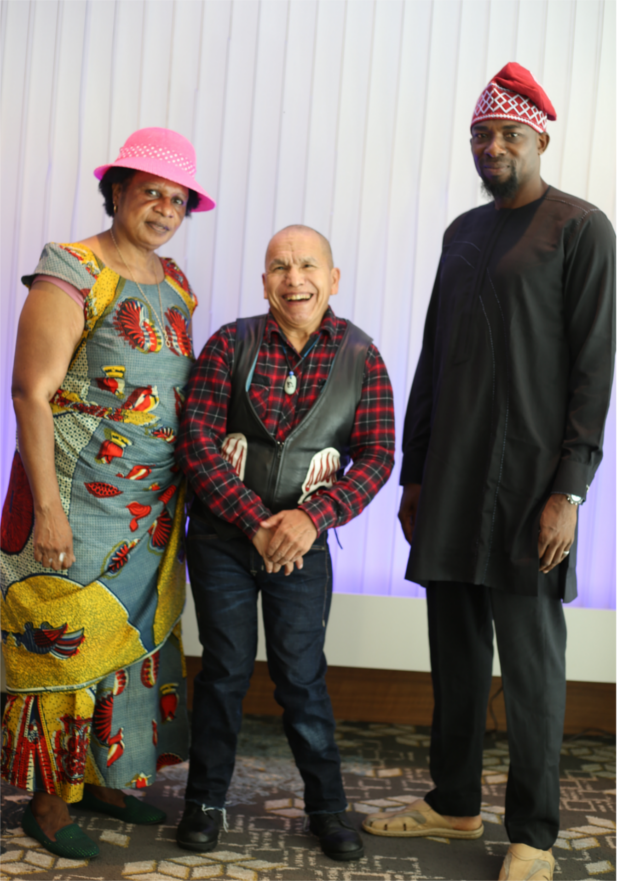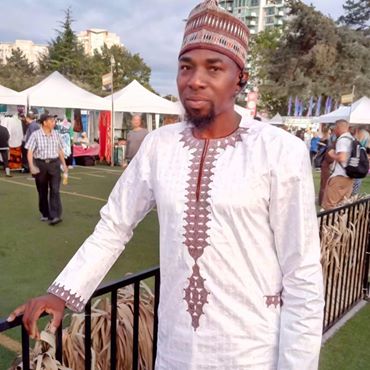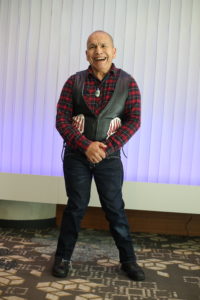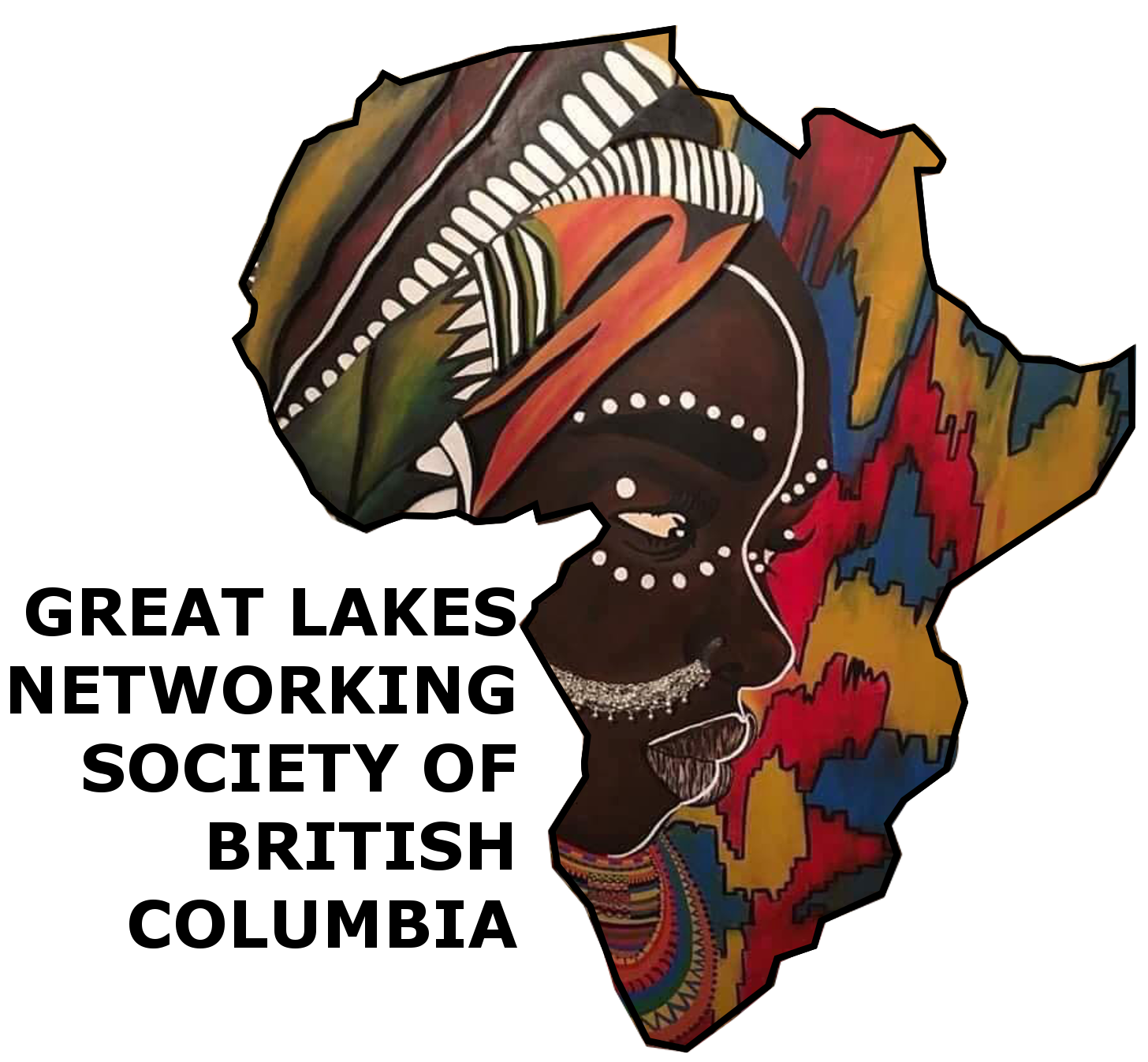ABOUT US AND WHAT WE DO
The Great Lakes Networking Society of BC (GLNS) underwent a significant transformation from its previous identity as the Africa Great Lakes Networking Foundation (AGL). In the nonprofit sector, networks typically connote groups of individuals or organizations collaborating towards shared objectives, such as advocating for prison reform, educational equity, food sovereignty, affordable housing, or accessible healthcare. Our mission transcends mere networking; we endeavor to reshape narratives surrounding the challenges confronting our communities by stimulating grassroots support to combat economic insecurity and amplify the voices of marginalized individuals. We firmly believe that genuine prosperity arises from vibrant, healthy, and sustainable communities.
While networks are often visualized as interconnected dots and lines, the essence lies in the people behind these connections, each fulfilling specific roles to effect transformative change. Founded upon the principle of self-empowerment, GLNS champions programs that uphold the dignity and well-being of community members, particularly refugees from the Great Lakes Region of Africa, other parts of the world and the under deserved/interfaith communities. Our mandates encompass addressing disparities, racism, discrimination, dismantling barriers to equal opportunities and resources, and advocating for social justice, especially for those grappling with mental illness, addiction, poverty, homelessness, unemployment, and disabilities, through organized arts, cultural and sports activities. Despite progress, significant gaps persist, particularly regarding the disproportionate impact of poverty on women/young people.
Reflecting on our journey, GLNS celebrates its evolution over 14 years since its inception in 2010. From humble beginnings, our organization has achieved remarkable milestones, surpassed initial aspirations and left an indelible mark on our communities. Throughout 2023, we dedicated ourselves to hosting captivating events that showcased creativity and excellence while making tangible impacts. As we embark on the UN Decade for the People of African Descent (2015-2024), we are poised to dissect the lessons gleaned from past successes and setbacks, poised for an even more dynamic 2024/25 and 2026.
Echoing the insights of June Holley, successful networks exhibit four interconnected aspects: intentional networking, relationship-building, collective action, and supportive structures. It is through the convergence of these elements that networks truly become transformative. GLNS thrives on forging connections with like-minded organizations and individuals, inviting engagement through our website/FB, Instagram, and various social media networking opportunities to fortify the ecosystem for people of African Descent.
Originating as a self-help group, to a registered Not for Profit organization. GLNS initially drew strength from shared experiences, of African heritage, and communal support systems. Over time, terminology evolved, necessitating a name change to better reflect our expanded scope of work. In May 2018, following extensive community consultations, GLNS emerged as the Great Lakes Networking Society of BC. While our core mission remains rooted in community empowerment, we have diversified our offerings to encompass arts, culture, education, sports, environmental initiatives, and peer-led engagement models.
Central to our programming is a commitment to serving underserved communities, particularly BIPOC individuals in Greater Vancouver and beyond. Most times we are allies, we collaborate with and empowered BIPOC communities, to Nurture active, consistent solidarity to dismantle systemic oppressions and racism. We are based in Vancouver’s Downtown Eastside, our initiatives prioritize community well-being, Cultivates belonging and resilience while amplifying BIPOC voices and cultural heritage.
Our cultural programming encompasses ancestral Indigenous African diasporic practices and knowledge are facilitated by elders, teachers, and knowledge-keepers, and spiritual healers. Through arts, dance, storytelling, and spiritual practices, education outreach, surveys, research, etc., we address mental health, anti-Black racism, and intergenerational trauma, Facilitate cultural understanding and healing. Our training programs promote African perspectives, cultural competence, and partnerships with Indigenous communities, Encouraging self-determination and social change.
In addition to cultural enrichment, GLNS fosters digital literacy, visual arts, performing arts, storytelling, leadership development, etc. Through innovative future skills solutions, we cultivate interculturality, sustainability, critical thinking, and cognitive adaptability, preparing individuals for success in a rapidly evolving global landscape. We prioritize community engagement, offer diverse programs and activities that promote equity, inclusion, and well-being, addressing issues ranging from mental health, environmental stewardship to a commitment to create, and engage in meaningful programming for children to improve the well-being of children in our communities.
As custodians of our society, GLNS’s volunteer board spearheads projects to advance social, economic, and cultural well-being for underserved communities, particularly people of African Descent, Indigenous peoples, and people of color. Our multifaceted approach encompasses leadership development, capacity-building, conflict resolution, youth empowerment, and women’s equality initiatives. We advocate for racial equality, truth, reconciliation, and interdependent, acknowledging the invaluable contributions of People of African Descent immigrants to Canada’s cultural mosaic.
Aligned with principles of equity and inclusion, GLNS acknowledges and respects the traditional territories of the Coast Salish peoples, upon which our programs and activities operate. To combat cultural appropriation, we adhere to protocols that prioritize meaningful representation, proper attribution, and respectful engagement with diverse communities. Furthermore, we are steadfast in our commitment to eliminating racism and discrimination, fostering environments that promote equity, diversity, and social justice.
In essence, GLNS remains steadfast in its mission to transform communities through inclusive, culturally informed programming and advocacy. As we navigate the complexities of our modern world, we stand as beacons of hope, resilience, and solidarity, committed to building a more just, equitable, and compassionate society for all.
We are settlers and grateful guests, living on the shared, unceded territories of the Skwxwú7mesh (Squamish), Səl̓ílwətaʔ (Tsleil-Waututh), and xʷməθkʷəy̓əm (Musqueam) First Nations. Our work at Great Lakes Networking Society serves communities across BC, with a global partnership. Colonization is still happening around us, and the struggles of People of African descent/(Blacks) Indigenous people are ongoing. The land continues to be stolen, and it is important to highlight this by spreading awareness and holding colonialist structures accountable, including our own participation in this land.

Ivy Aliban
Assistant Secretary General

Board Responsibilities
The board appointed the CEO who is also the founder and works with the co-CEO heading the Indigenous programs/representation. The board has the President, a vice presidents, the Secretary-General, Assist Secretary, and the Financial Director. Duties of our volunteer board: Appointed the CEO who is also a life member and the co-CEO; both CEOs approve and make major decisions on policies and procedures; they oversee performances; serve as, external advocates; responsible for management. The CEO is a custodian who leads the Great Lakes Networking Society of BC in keeping with the board’s direction.
Management Duties
Makes operational decisions, policies, and procedures, keeping the board educated, and informed with well-documented recommendations and information.
Board Functions
Our board functions best, focusing on higher-level, future-oriented issues and priorities, and the need to get more intrinsically involved. When the board sees negative results, its red flags and delves deeper into management issues to get the organization back on track for the duties of the programs to fulfill. The Board approves the annual budget, and audits and shares with its members during their annual general meeting, with recommendations of the budget for the upcoming year.
Supporting the CEO
Our Board has an open strong working relationship with the management and this has made our organization benefit in a notable way, the Board to continue supporting both CEO in implementing board decisions, such as awarding or ending contracts. At times, the CEO asks the board for intervention and support, the CEO will always need the board to intervene with management in ways that help raise performance. Board will also support the CEO by using their networks within the community to support the work of the organization.
Read more…
THE CEO, CO-CEO AND THE BOARD
Great Lakes Society is governed by active and experienced volunteer Board, They are activist, advocates, and organizers, Men, Women, and Youth . The Board ensures that the organization is compliant with the best practices, and case study
VOLUNTEER BOARD OF DIRECTORS
CEO/FOUNDER-KOMBII B. NANJALAH
CO-CEO-STEPHEN LYTTON
BOARD MEMBERS
President - Taofic Youssouf Vice- President - Patience Magagula Secretary-general - Joshua Khamala Assist. Secretary - Dr. Saal Finance - Samuel Mulongo

Kombii Nanjalah
CHIEF EXECUTIVE OFFICER
The Volunteer Board Appointed Kombii Nanjalah as CEO. She represents People of African Descent, African diaspora, people of color, and religious minorities where she Coordinates international programs as well. Has worked in different capacities, sits on different Boards, an activist, and Shop Steward for BC Government Employee Union. Kombii has deeply Committed to Social Justice, Diversity, and Inclusion, and her work is based on anti-oppression, Anti-Black, Anti- Indigenous peoples, and decolonizing frameworks. With a leading role in communities, in a spirit of solidarity, at the forefront of ethics, and diversity.

Stephen Lytton
CO-CHIEF EXECUTIVE OFFICER
Stephen Layton represents the Indigenous peoples and helps the community to understand the past history of Indigenous peoples, working towards reconciliation, and healing. Lytton is a member of the Nicomen Indian Band within the Nlaka’pamux First Nation.
An accomplished actor, writer, and presenter, Stephen Lytton has presented both in western and eastern Canada to various groups regarding his personal experiences as a survivor of the residential schools and as an Aboriginal person living with a disability.

Mouhamed Youssouf
PRESIDENT
The President Was born in Benin officially the Republic of Benin (French: République du Bénin) and formerly known as Dahomey, is a country in West Africa. It is bordered by Togo to the west, Nigeria to the east, Burkina Faso to the north-west, and Niger to the north-east. A father, a husband, and a community leader with stories to share, this is what is on his mind: 2020 has been an incredible year. A year that has been packed with historic moments that many of us won’t forget any time soon.

Patience Magagula
VICE PRESIDENT
The Vice President, is an advocate for those people with HIV lived experiences in Black communities.

Joshua Khamala
SECRETARY GENERAL
Secretary General-“Education, Training, Scholarships, Awards and Youth Sports”. Holds a Degree in Tourism and Hospitality Management, Diploma from North Shore Culinary School, and a Diploma in Marketing from BCIT Canada.

Samuel Mulongo
FINANCIAL DIRECTOR
Financial Director, Risk Management, Media, Communications, and Fundraising.

Assistant Secretary General
Ivy Aliban
PRINCIPLE OF SPECIALIZATION
Every individual is assigned a duty according to their skills and qualifications
ORGANIZATIONAL RESPONSIBILITIES
Board members follow designed organizational guiding Principles including the principle of the objectives, with set up aims to achieve common goals in various programs. The principal of GLBC, the Hierarchical structure, authority, unity of command, division of staff, line-span of control, equality of responsibility, authority, etc. enable GLBC board to believe and recognize collaborations and partnerships, the stakeholders, and the communities they work with to achieve the objectives.
Wajumbe wa Bodi wanafuata kanuni za kuongoza shirika hili pamoja na kanuni ya Malengo. Malengo yaliyowekwa yafaa yatimizwe kufanikishwa kwa malengo ya kawaida katika mipango mbali mbali. Malengo makuu ya GLBC, muundo wa Hierarkiki, mamlaka, umoja wa amri, mgawanyiko wa wafanyikazi, safu ya udhibiti, usawa wa jukumu, mamlaka, ni jukumu la Bodi ya GLBC, ambayo inatambua na kuamini ushirika, kwa wadau, na kwa jamii wanayofanya kazi na ziriki hili kwa kufikia malengo yayo ya kawaida.
PRINCIPLE OF SPECIALIZATION
Every individual is assigned a duty according to their skills and qualifications. No discrimination PRINCIPLES OF DEFINTION - Scope of authority and responsibility is clearly defined for each person to know his/her work with definiteness. Everybody's responsibility will become nobody's responsibility with clear definition on relationships between different departments PRINCIPLES OF EFFICIENCY - With enterprise objectives at a minimum cost, standard of costs and revenue to be predetermined and performances to be according to our goals. PRINCIPLES OF CONTINUITY - Great Lakes Society programs, activities, and events be amendable according to the changing situations but to remain dynamic not static, with periodical and necessary adjustments PRINCIPLES OF COORDINATION - Need for proper coordination for different activities and or programs Then the following: PRINCIPLE OF SPAN CONTROL RESPECT THE PRINCIPLE OF AUTHORITY AND RESPONSIBILITY PRINCIPLE OF BALANCE - Assignment of work
Kombii Nanjalah
Chief Executive Officer
Pushing for inter-generational Trauma healing and looking at the Decolonization. At Great Lakes Society of BC, we are committed to Truth and Reconciliation, decolonization and anti-racism, and together with community, we build strong and supportive relationships at welcoming and inclusive sites throughout Metro Vancouver and beyond. As an organization that has navigated over 130 years of Canadian history, we recognize the importance of listening, learning and acting as allies to our community members. As we learn about our history, and complicity in the oppression of Indigenous People, we strive to make positive changes within GLNS and neighbourhoods that we serve, committing ourselves to Truth and Reconciliation, Decolonization, and anti-racism, these are the ways we are putting that into action: We are committed to create brave platforms/spaces for community members, volunteers and staff to come together to have real conversations about racism – at individual and systemic levels. This includes distinct conversations about anti-Black racism, anti-Indigenous racism, anti-Muslim racism, anti-Semitism, anti-Asian racism, and all other forms of xenophobia and discrimination.
We look at ourselves as a large organization to understand how we have benefited from colonization, to examine when we have stood up and when we have remained silent, and to fully recognize the harm that our silence has caused. We commit to holding ourselves accountable and look at how the diverse communities we work with are reflected in senior leadership and Board Governance. This is not about tokenism, it’s about creating real change in our own organizational systems, speaking out against injustice, while working to decolonize our practices.
Most organizations are familiar with a corporate structure for decision making that holds power at the top, but at GLNSBC, our social justice values inform a different way of working. We draw from a grassroots approach that embeds principles for power sharing and working collaboratively within the single legal entity structure, meaning that decisions made for our organization are always informed by what’s happening on the ground in our communities.
Advocates for Children and Youth to improve their lives and experiences, through policy change and program improvement. She tells her own story, the stories of her people on the continent of Africa and globally in a simple way. She says her mom lovingly influenced every aspect of her life through her words and actions, her guidance and courage, her positive attitude and empathy, her inner beauty and her physical beauty, her total devotion to family and friends, her unparalleled integrity and dignity. My mom is my hero, my inspiration to always be better and do better, my role model for my dedication to philanthropy, and she is my best friend, kombii says, as her dad died when she was 7 years old.
Kombis’ input to MYSA was great, and an eye-opener, she played a major role on the executive committee at MYSA, and she as well involved herself to play on the Moja One executive team. She took the U/16 boys team to Oslo- Norway, paid for by the Norwegian government Ministry of Environment, which was the love for her advocacy for the environment always. MYSA was the first Youth Sports organization to organize soccer youth for street kids in the entire continent from 1987. MYSA was nominated for the Nobel Prize in 2003. Kombii received Kenya’s “Presidential Award” The President’s Award-Kenya exists to develop and deliver quality experiential activities that impart positive life skills and ethical values to young people for a better society. An AWARD is an exciting self-development program available to all young people countrywide equipping them with positive life skills to make a difference for themselves, their communities, their country, and the world. It was launched in 1966 by the Founding Father of the Nation, Mzee Jomo Kenyatta. The Award is a member of the Duke of Edinburgh’s International Award Association, which oversees the Award Programme for young people in over one hundred and twenty countries. His Royal Highness, Prince Phillip founded the Duke of Edinburgh’s Award in 1956. Kombii headed “Great Lakes Kenya”, which was affiliated with” The Civil Society Coalition which worked with other local grassroots organizations and UN-Habitat to Support the Kenya Slum Upgrading Programme (KENSUP), she was one of the key players in KENSUP/UN and the government of Kenya to upgrade the slums of Kibera in Nairobi Kenya. Ms. Kombii says She is proud to live in a country where community members come together to work on common goals, and where common dreams crowd out the fears that would divide the community. Canada is so greatly enriched by its diversity of cultures, languages, and religions, and by our shared beliefs, respect, acceptance, understanding, friendship and inclusion.” advocating for the “Things that should not weaken the fabric of who we are and in society we live and belong”. Ms. Nanjalah works with a group of like-minded individuals with different backgrounds and experiences who see the need to support the underserved and more impoverished groups. She runs the Great Lakes Networking Society of BC as the CEO of the society that uses its unique arts for a collective impact model to enable underserved communities to use creativity to change their lives and their communities as well
Stephen Lytton
Co-Chief Executive Officer

Continued…
Stephen Lytton was born in Lytton, BC in 1955. He was born affected with cerebral palsy that has affected his mobility from the waist down. The condition led to many developmental delays due to limited access to service out of Lytton. Stephen experienced a great deal of corrective surgery and lengthy hospital stays throughout his childhood. He walked assisted by leg braces from the waist down.
www.cacv.ca/stephen-lytton
I grew up in Lytton, British Columbia, and moved to Vancouver in 1978, while in my early 20s. In 1992, I moved to the Downtown Eastside. I found some aspects of life in this area frightening at first, but soon made friends and became comfortable here.
www.cacv.ca/stephen-lyttons-talk.
Stephen Lytton Receives GG Caring Canadian Award
by CACV ADMIN
On Friday, March 4, 2016, Stephen Lytton received the Governor General’s Caring Canadian Award. The award “recognizes individuals who volunteer their time to help others and to build a smarter and more caring nation. The award also highlights the fine example set by volunteers, whose compassion and engagement are so much a part of our Canadian character.
Stephen gave a speech at the 2010 CACV annual general meeting and became a CACV board member in 2013.
Stephen recently performed in “Bah! Humbug!” at the Fei and Milton Wong Experimental Theatre. He will be a featured presenter at the Ignite conference in Prince George in June.
From the official media release: Stephen George Lytton, Vancouver, BC
Refusing to accept the marginalization of First Nations people with disabilities, Stephen Lytton has volunteered with the British Columbia Aboriginal Network on Disability Society since 1991, where he currently serves as president. Under his leadership, the Society promotes Aboriginal participation in community planning and provides disability, health and social support services throughout the province.
Mouhamed Youssouf
President

The community has been very much at the heart of so many of these moments. After all, that’s what community is all about – bringing like-minded people together to form bonds, create movements, build bridges, strengthen relationships and drive lasting change. At Great Lakes Society, we support communities from all walks of life, all origins and backgrounds through our set up – powerful programs which was sort of hard during the COVID”19 times, our Community Resilience team focused on supporting vulnerable and undeserved communities who were most at risk during the COVID–19 pandemic. We provided online, and phone coping strategies support during COVID challenges. That time of need, the earth, the leaders, activists, civil society, and members of our communities, stood together. I’m stunned at how our homeless families are treated, and if asked to go home and isolate when discharged from hospitals, how do they do that; which homes do they go to?
The demographic databases are crucial information for Covid-19 which is not being provided for the testing, tracking, tracing, treating, containing, and eventually eliminating this pandemic.

